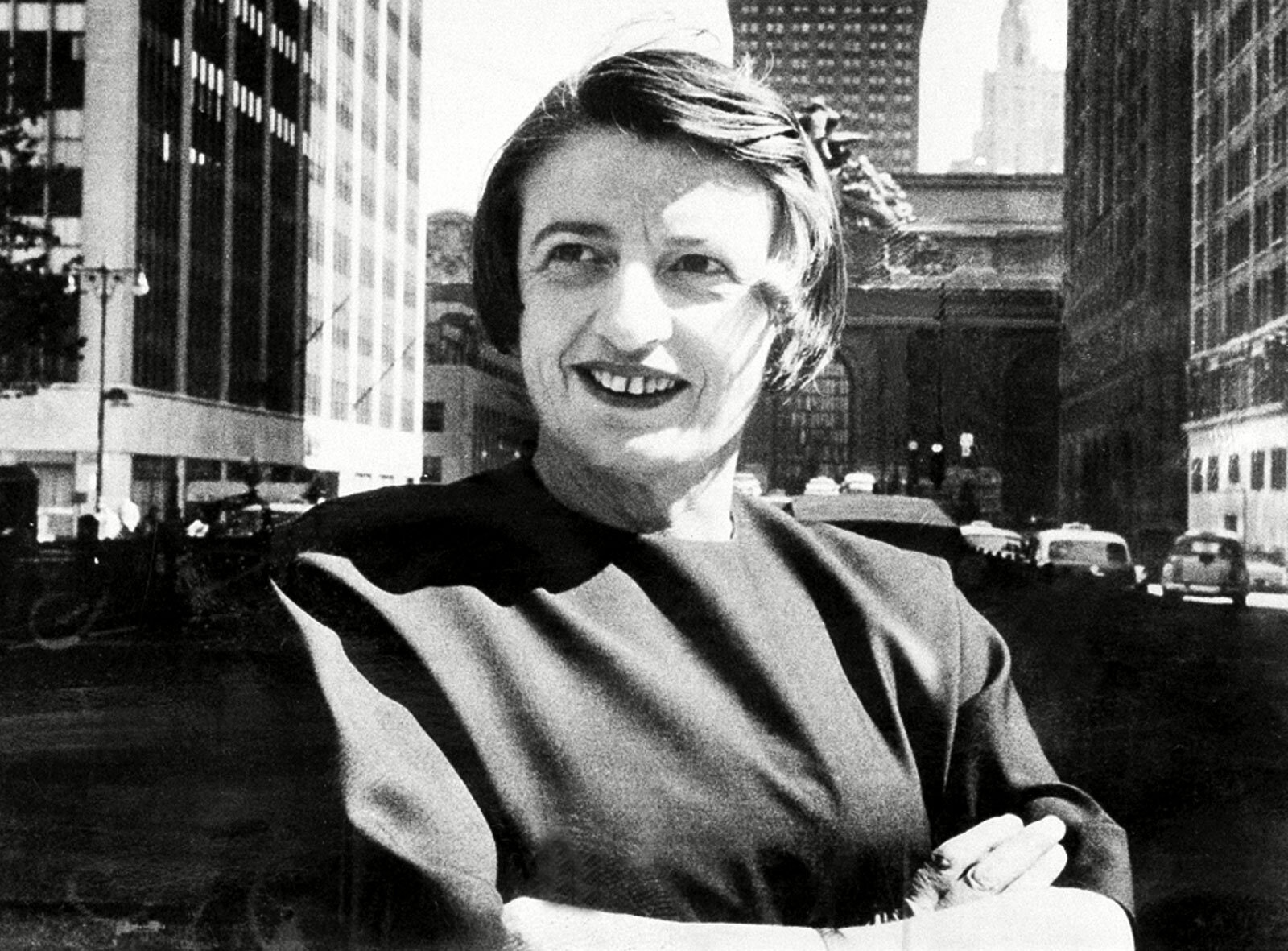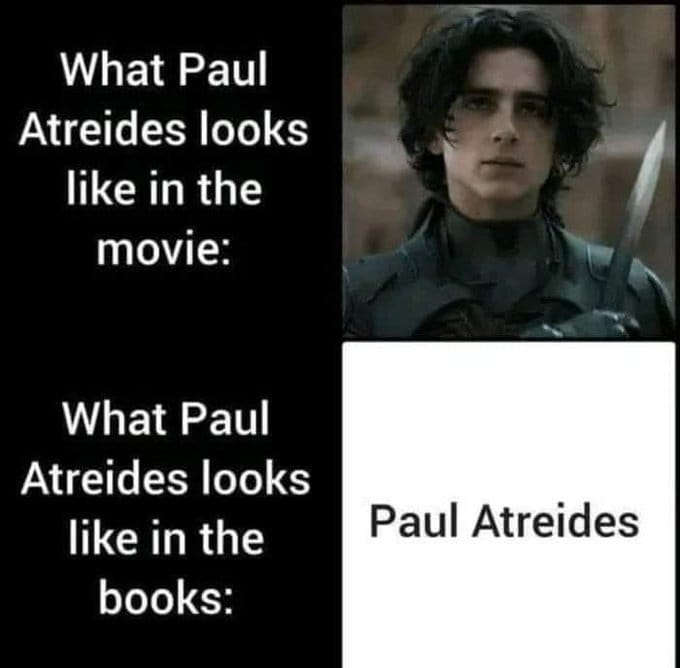The Long View 2008-03-30: Horror Shows

Unlike John J. Reilly, I do have a beef with Objectivists, and Rand in particular, but then again as a teenager I fell under their spell for a brief period, so it natural that I would.
I have nothing against Objectivists, and Rand seemed to me a colorful public character, the sort of person who can be forgiven much. Neither was the movie trying to make her seem ridiculous. Nonetheless, I could not help but note how much Rand’s seminars for her followers resembled Maoist struggle sessions. It was all very psychotherapeutic. The participants in these sessions were called upon to formulate the logical bases for their emotions and then to confess to the group their logical errors. The Ayn Rand Institute, if that is what the large meetings were supposed to represent, resembled nothing so much as the Old Left Communist Party, complete with purges and the designation of unpersons.
What do these observations tell us? That we never escape our period; that, to future observers, we will appear more similar than different to people we regard as our cultural and intellectual opposites. And this is just the sort of historicist insight that Objectivism makes impossible.
It is funny to think of her seminars for Objectivists as a piece with the time, however. Tom Wolfe wrote about roughly contemporaneous “lemon sessions” or “encounter sessions” in New York Magazine in 1976. Roughly everyone did this, from Maoists to Yalie Skull and Bones members to Cesar Chavez.
Horror Shows
Ghost Hunters and Destination Truth are two SciFi Channel series I follow pretty regularly, usually by watching the episodes online when I get a chance. They do have some fundamental conceptual problems, though.
Ghost Hunters is by far the more fun. Nominally a “reality” show, it follows a pair of nominal plumbers and their little band of psychic investigators as the travel around the Northeastern United States (with occasional trips further afield) to investigate allegedly haunted locales. They find something paranormal, in their own estimation, in a quarter to a half of all the places they visit.
Their techniques for detecting the ghosts, and the reality of the ghosts themselves, must be a matter of taste for viewers who are not in a position to take part in these investigations. Skeptics find them very distasteful indeed. I gather that the chief skeptical objection is that many of the events the Ghost Hunters record on video or audio would be easy to fake. I am sure that is true. It is also true of any forensic investigation. The remedy is to have some neutral party monitor the investigators, or to send a team of investigators to some of the sites where the Ghost Hunters visited and try to reproduce the Ghost Hunter results.
The most interesting problem with the show is that every episode is a little like the Monty Python skit in which a group of explorers are lost in the jungle.
“We’re lost,” one says. “There is no way we will ever find our way out!”
“Now wait,” says another, “don’t panic. Think. If we’re on screen, then...someone must be filming us!”
And so they immediately discover the camera crew.
Some such thought must occur to most viewers of any Ghost Hunters episode. The typical scene in a show consists of two Ghost Hunters in a darkened room, looking at each other and asking, “Did you hear that?” Sometimes they turn around and see a shadow or an apparition. Why wasn’t the guy holding the camera on the lookout for the shadow or the apparition? Why aren’t the Ghost Hunters filming each other?
To be fair, the show does sometimes credit the camera crew. I think they were even introduced once or twice. But they are an integral part of what happens in each episode. The fact that this is not usually acknowledged makes the episodes looked staged. Maybe they are staged, but if so, the fact should be better hidden.
Destination Truth is more like a conventional documentary. A great, bluff documentarian flies to various places around the world, where he bosses an audiovisual and scientific crew as they look for evidence of legendary, and probably imaginary, animals. One suspects that the budget for Destination Truth is much higher than for Ghost Hunters. The money is not wasted. The cinematography of Nepal or Central Africa is much more interesting than that of a bed-and-breakfast in Sloatsburg, New York, no matter how haunted.
The problem is that no show in the series can be as dramatic as an episode of Ghost Hunters. The Ghost Hunters, after a grueling sleepover and the deployment of a formidable array of handheld gadgets, sometimes can claim surprising results. A chair is seen to move, ever so little, or a silhouette appears on the wall of a windowless room. How would we have known, if the Ghost Hunters had not told us? Destination Truth, in contrast, goes after bigger fish: the Yeti, dinosaurs, the Dreaded Mongolian Deathworm. If Destination Truth had found even one of those things, we would have heard about it long before the episode in question aired; the series itself would probably have already negotiated a switch to a better network. Sometimes they do find the odd footprint or other spoor, but always something ambiguous, and rarely anything that seems to justify the cost of the trip.
There is another SciFi series of the same sort: Ghost Hunters International. It is better to leave the spinoffs to one’s competitors, perhaps.
* * *
The Passion of Ayn Rand is a made-for-television film that premiered in 1999. It won several awards. It’s about a more-or-less true episode in the life of the founder of Objectivism. During the 1950s, when Rand was working on Atlas Shrugged, she developed a crush on one of her young admirers, a married man. She insisted that his wife and Rand’s own husband acknowledge the “logical” consequences of such a relationship, down to mutually agreed upon times when she and the young man could be together.
The film is relatively old news, but I had not heard of it until last Friday, when I happened to see it on television. Objectivism, frankly, always struck me like the kind of philosophy that someone would make up for a movie that required the characters to be influenced by an exotic philosophy, rather like the theocratic churches that Heinlein used to make up for his novels.
I have nothing against Objectivists, and Rand seemed to me a colorful public character, the sort of person who can be forgiven much. Neither was the movie trying to make her seem ridiculous. Nonetheless, I could not help but note how much Rand’s seminars for her followers resembled Maoist struggle sessions. It was all very psychotherapeutic. The participants in these sessions were called upon to formulate the logical bases for their emotions and then to confess to the group their logical errors. The Ayn Rand Institute, if that is what the large meetings were supposed to represent, resembled nothing so much as the Old Left Communist Party, complete with purges and the designation of unpersons.
What do these observations tell us? That we never escape our period; that, to future observers, we will appear more similar than different to people we regard as our cultural and intellectual opposites. And this is just the sort of historicist insight that Objectivism makes impossible.
* * *
Finally, we come to Geert Wilders’ campaign ad, Fitna, Arabic for “struggle.” It’s a short film. If you’ve seen television and Internet video of the victims of Islamist terrorism, and if you have read the Koran and can recall the more aggressive bits, then this slideshow with slick audio will hold no surprises for you. It was banned from two not-usually-very-discriminating webportals. You can find various versions of it on YouTube, each with subtitles in a different language to translate the original Dutch.
After all the images of blown-up bodies and severed heads, we come to the greatest outrage of all: the death threats against Geert Wilders, a minor Dutch politician who apparently aspires to rise to the “major” category by promoting himself to prospective martyr.
It is said of a certain kind of man that he could not attract much attention even if he set himself on fire. Wilders may fall into that category.
Does that make the film unimportant? Perhaps not. The studied refusal of the world Islamist network to fly into a bloody rage about this film proves that the episodes of outrage have always been part of a racket.
Copyright © 2008 by John J. Reilly

Comments ()